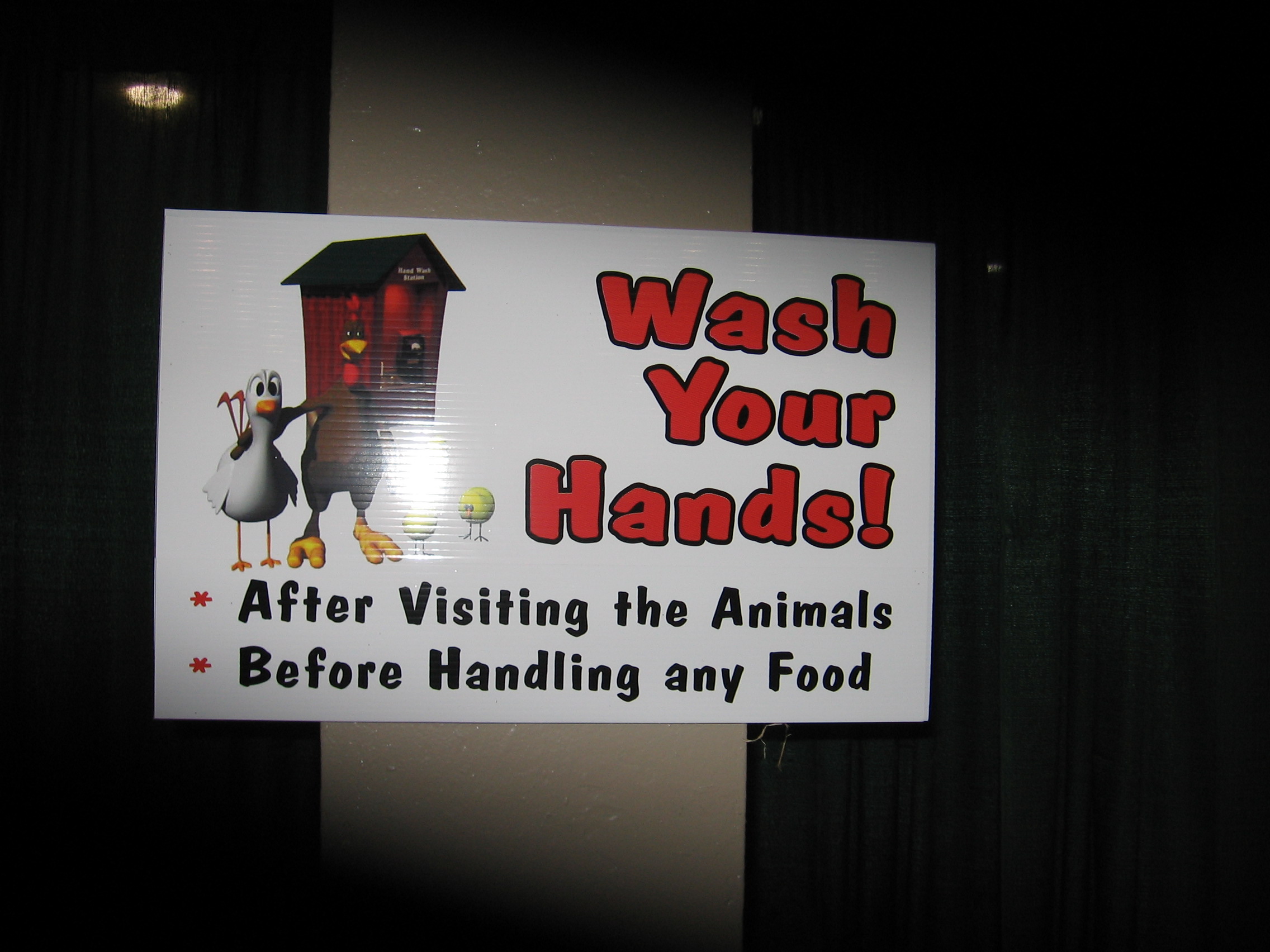In the fall of 1998, I accompanied one of my five daughters on a kindergarten trip to the farm. After petting the animals and touring the crops — I questioned the fresh manure on the strawberries –we were assured that all the food produced was natural. We then returned for unpasteurized apple cider.
The host served the cider in a coffee urn, heated, so my concern about it being unpasteurized was abated. I asked: "Did you serve the cider  heated because you heard about other outbreaks and were concerned about liability?" She responded, "No. The stuff starts to smell when it’s a few weeks old and heating removes the smell."??
heated because you heard about other outbreaks and were concerned about liability?" She responded, "No. The stuff starts to smell when it’s a few weeks old and heating removes the smell."??
I’m all for farm visits, local markets, petting zoos, but I want the operators to have a clue about the dangerous bugs that make people – especially little kids – sick.
What I haven’t written about before is that I called the local board of education after the farm visit and insisted the specific farm be removed from future school visits because it was obvious the operators were clueless about the dangerous microorganisms that can sicken kids.
And it happens a lot.
The U.K. Health Protection Agency reported today in Emerging Infectious Disease that it recorded 55 outbreaks of gastrointestinal diseases, such as E.coli and cryptosporidium between 1992 and 2009.
Lead author Dr Fraser Gormley, a HPA epidemiologist, said,
"Handwashing is the single most important prevention step in reducing transmission of gastrointestinal infections after handling animals and it’s .jpg) crucial that handwashing in young children should be supervised, especially after touching or petting animals or their surroundings on a visit to a farm."
crucial that handwashing in young children should be supervised, especially after touching or petting animals or their surroundings on a visit to a farm."
Those ‘Visitors Must Wash Hands’ signs are not enough. Operators need to take this seriously. So do education officials who send kids to substandard farms. If farms and petting zoos want to make money off school visits, they should actively promote handwashing and microbial awareness; if not, no school visits.

.jpg) This morning, the
This morning, the .jpg) It has emerged health officials knew about the outbreak among people who visited the farm days before it was closed to the public.
It has emerged health officials knew about the outbreak among people who visited the farm days before it was closed to the public.(1).jpg) Richard, please share with us your knowledge of natural reservoirs of E. coli O157, and the steps you’ve taken to control such dangerous pathogens
Richard, please share with us your knowledge of natural reservoirs of E. coli O157, and the steps you’ve taken to control such dangerous pathogens .jpg) One of the children affected is currently in hospital and is described as ‘poorly but stable’.
One of the children affected is currently in hospital and is described as ‘poorly but stable’..jpg) The infections came after a number of recent farm visits, health officials say.
The infections came after a number of recent farm visits, health officials say. *Children must not eat or drink or put their fingers in their mouths whilst close to animals and before washing their hands.
*Children must not eat or drink or put their fingers in their mouths whilst close to animals and before washing their hands.